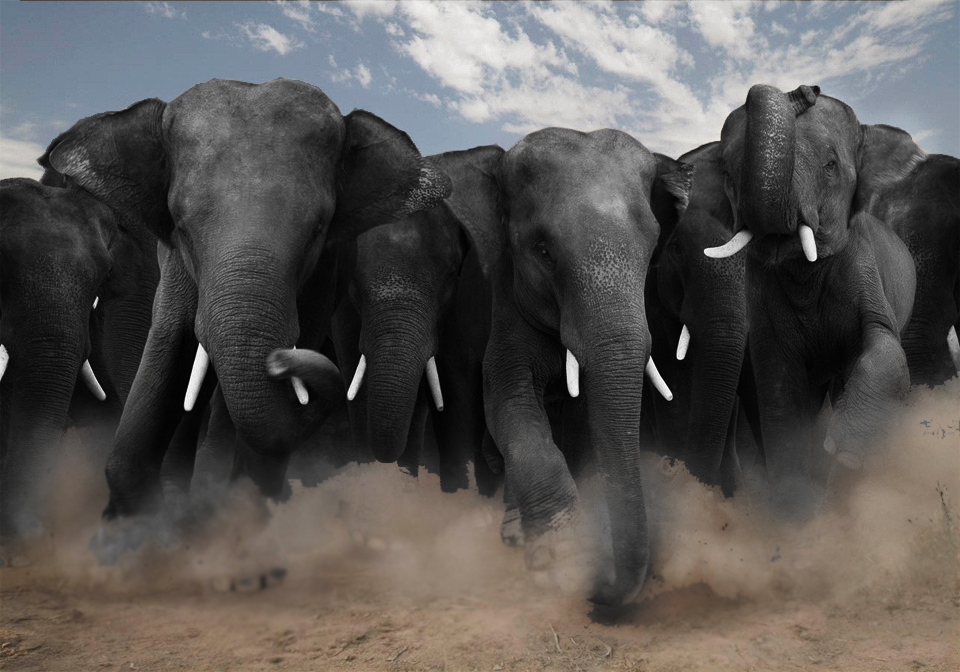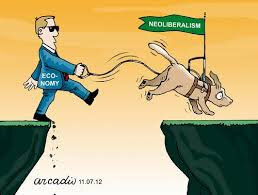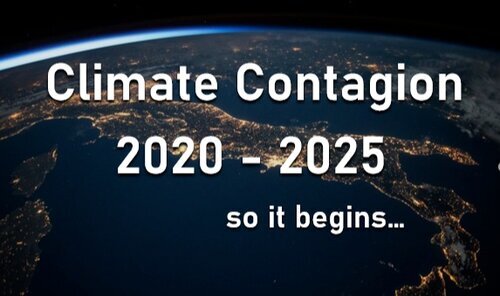
The Cockatoo Chronicles

It Will Get Darker Before The Dawn
COVID 19 is not a ‘black swan’ – a singular, unexpected event. It is the first in a series of what NYT’s Tom Friedman referred to as a ‘herd of stampeding black elephants’ – multiple, predictable and economically catastrophic events. Events that everyone knows are coming but our political and business leaders have consciously chosen not to deal with.
Choices have consequences….

COVID-19 And The Death of Market Fundamentalism
On top of the countless human tragedies, there will be many long-lasting social and economic impacts of the COVID-19 pandemic. Perhaps none will be more profound though, than the death of free market fundamentalism and the return of the State…
COVID-19 presents a blindingly powerful economic case for change. It shows that an ideological, quasi-religious approach to regulating markets, sometimes called neo-liberalism and, until the virus, the dominant political approach in the west, is fatally flawed. It creates a weak and unstable economy, which magnifies risks and is unable to manage shocks1. It threatens itself.

Climate Contagion 2020-2025: So It Begins…
You can pretty much hear it now. It’s like being in a forest and hearing the leaves rustling in the tops of trees, just before the storm hits. Then it comes with a roar, everything shakes, and we look around wondering what will fall – and will it fall on us.
This is how I see the global economy and climate change. Everything is ready, everyone knows it’s coming, we’re just waiting for the storm to hit.
When it does, it will be the climate emergency meets financial contagion. When the global market flips to FOMO – from fear of acting too early, to fear of being left behind as everyone races for the exits.

Will 1.5 Degrees Trigger a Death Spiral for Oil and Gas?
It has always been clear that fixing climate change would require a massive industrial and technological transformation, with widespread social and economic consequences. The recent UN Intergovernmental Panel on Climate Change (IPCC) Special Report on 1.5 degrees however deeply challenges dominant assumptions about the speed and scale involved. This has profound implications for many industries and policy makers, but perhaps most dramatically for the future of the multi-trillion-dollar fossil fuel industry…

Why Incumbents Fail - And What That Means For Sustainability
The core assumption and focus of people who work to drive sustainability through markets – as corporate leaders, investors, NGOs or thought leaders – is that we need to convince existing companies and their shareholders that sustainability is first good for their business, and secondly, they can successfully transition to a sustainable business model.
But what if both of these are wrong? As someone who has spent over 25 years in that world, I’m starting to think they both might be. If so, it calls into question the very basis of the work literally millions of us are engaged in. So, it is at least worth a discussion!

Disruptive Markets - What Sustainability Really Means for Business
Many look around at today’s crises – climate change spinning out of control, inequality driving political instability and our oceans filling with plastic – and despair at the prospects for serious change. Most then try to apportion blame or at least seek to understand why. Business blames consumers. NGOs blame business. Everyone blames politicians.
Almost everyone who is engaged and thoughtful on this.. blame capitalism, markets and big business. This is well justified given it has been the delivery vehicle for all these crises.
But where does that leave us? As a campaigner who has spent 40+ years on these issues, I’m not satisfied with just a problem diagnosis, I need a way forward, a credible path to success. When talking about risks to the future of civilisation, accepting failure is not really a strategic option.

The Walking Dead in Washington
We’re all focused on the drama and entertainment of Trump’s takeover of the world’s centre of military, security and economic power. For some it’s exciting and entertaining, for others terrifying and apocalyptic. I too have been glued to the news – at various times having each of those responses! But now I’ve come back to earth, recognising it all for what it is. Important, but a sideshow to a much bigger and more important game. And on reflection, I’m glad he got elected.
How can a Trump Presidency be positive? Surely this is a major setback – to action on climate change, to addressing inequality, to human rights and global security. Doesn’t it make the world a scarier and less stable place? In isolation, all true, but in context, not so much. The context is the key.

Fossil Fuels Are Finished. The Rest Is Detail.
It’s time to make the call – fossil fuels are finished. The rest is detail.
The detail is interesting and important, but unless we recognise the central proposition: that the fossil fuel age is coming to an end, and within 15 to 30 years – not 50 to 100 – we risk making serious and damaging mistakes in climate and economic policy, in investment strategy and in geopolitics and defence…
It is now becoming clear we’ve reached a tipping point where fossil fuels will enter terminal decline, independently of climate policy action. Given climate policy action is also now accelerating, fossil fuels are double dead. To paraphrase Douglas Adams, “So long and thanks for all the energy”.

The Year the Dam of Denial Breaks - Ready for the Flood?
This is the year the “dam of denial” will break and the momentum for climate action will become an unstoppable flood. It will be messy, confusing and endlessly debated but with historical hindsight, 2015 will be the year. The year the world turned, primarily because the market woke up to the economic threat posed by climate change and the economic opportunity in the inevitable decline of fossil fuels. That shift will in turn unlock government policy and public opinion because the previous resistance to action argued on economic grounds, will reverse to favour action on economic grounds.
The Global Energy Market’s Moment of Truth
If you want to know what addressing climate change will really be like for business and investors, then take a look at today’s electricity and energy markets. Driven by climate policy, technology development, business innovation, NGO campaigns and investment risk analysis, creative destruction is inflicting itself upon the sector with a vengeance – and the process has just begun.
..this is not a temporary market blip but a fundamental shift. Company strategies and business models that have been working for generations are collapsing. In parallel we see the creative side of the process, with new industries being built, entrepreneurs flourishing and massive wealth being created. Now the market is working, as it should, allocating capital to the places where risk and return are best aligned. It is at once a beautiful and brutal process to observe.